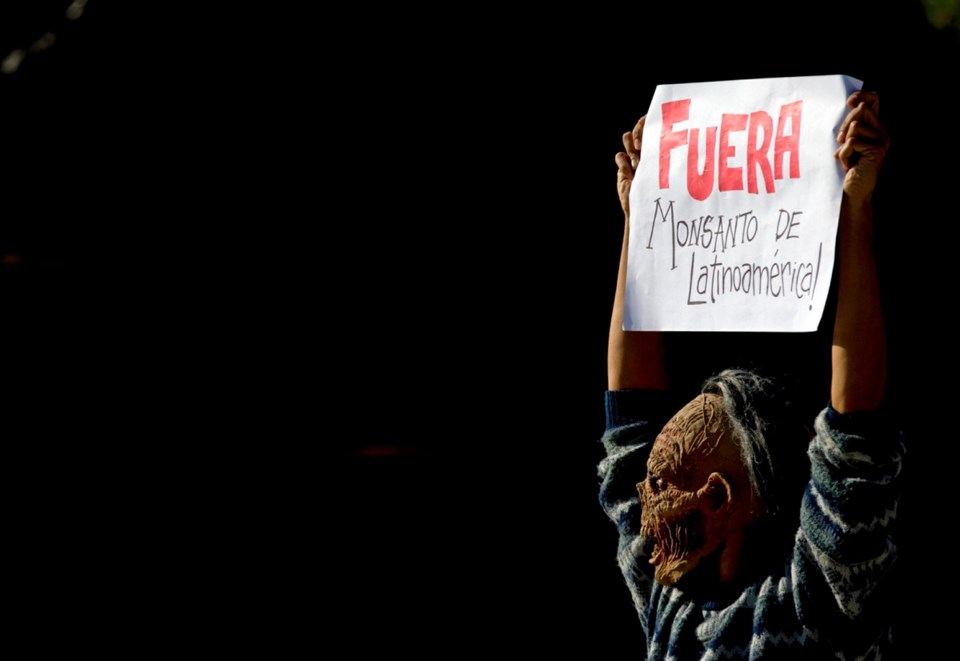Hundreds of Victoria residents gathered at the legislature Saturday as part of a global rally against seed giant Monsanto and the genetically modified food it produces.
“March Against Monsanto” protests were scheduled in 52 countries and 436 cities, including Nanaimo, the Comox Valley and 10 mainland communities.
In Victoria, protesters held signs that read, “GMO heck no,” “If it’s so safe, label it!” and “We are not science experiments!” The rally featured guest speakers, live music and free face painting.
Internationally, protesters said they wanted to call attention to the dangers posed by genetically modified food and the food giants that produce it. Marches were planned for more than 250 cities around the globe.
Genetically modified organisms are plants grown from seeds that are engineered to resist insecticides and herbicides, add nutritional benefits or otherwise improve crop yields and increase the global food supply. Most corn, soybean and cotton crops grown in the United States today have been genetically modified. But some say genetically modified organisms can lead to serious health conditions and harm the environment.
Monsanto Co., based in St. Louis, said Saturday that it respects people’s rights to express their opinion on the topic, but maintains that its seeds improve agriculture by helping farmers produce more from their land while conserving resources such as water and energy.
The use of GMOs has been a controversial issue in recent years, with health advocates pushing for mandatory labelling of genetically modified products even though the federal government and many scientists say the technology is safe. The U.S. Food and Drug Administration does not require labelling, but organic food companies and some consumer groups have intensified their push for labels, arguing that the modified seeds are floating from field to field and contaminating traditional crops. The groups have been bolstered by a growing network of consumers who are wary of processed and modified foods.
The Biotechnology Industry Organization, a lobbying group that represents Monsanto, DuPont and Co. and other makers of genetically modified seeds, has said mandatory labelling would only mislead or confuse consumers into thinking the products aren’t safe, even though the FDA has said there’s no difference between GMO and organic, non-GMO foods.
— with files by Amy Smart



